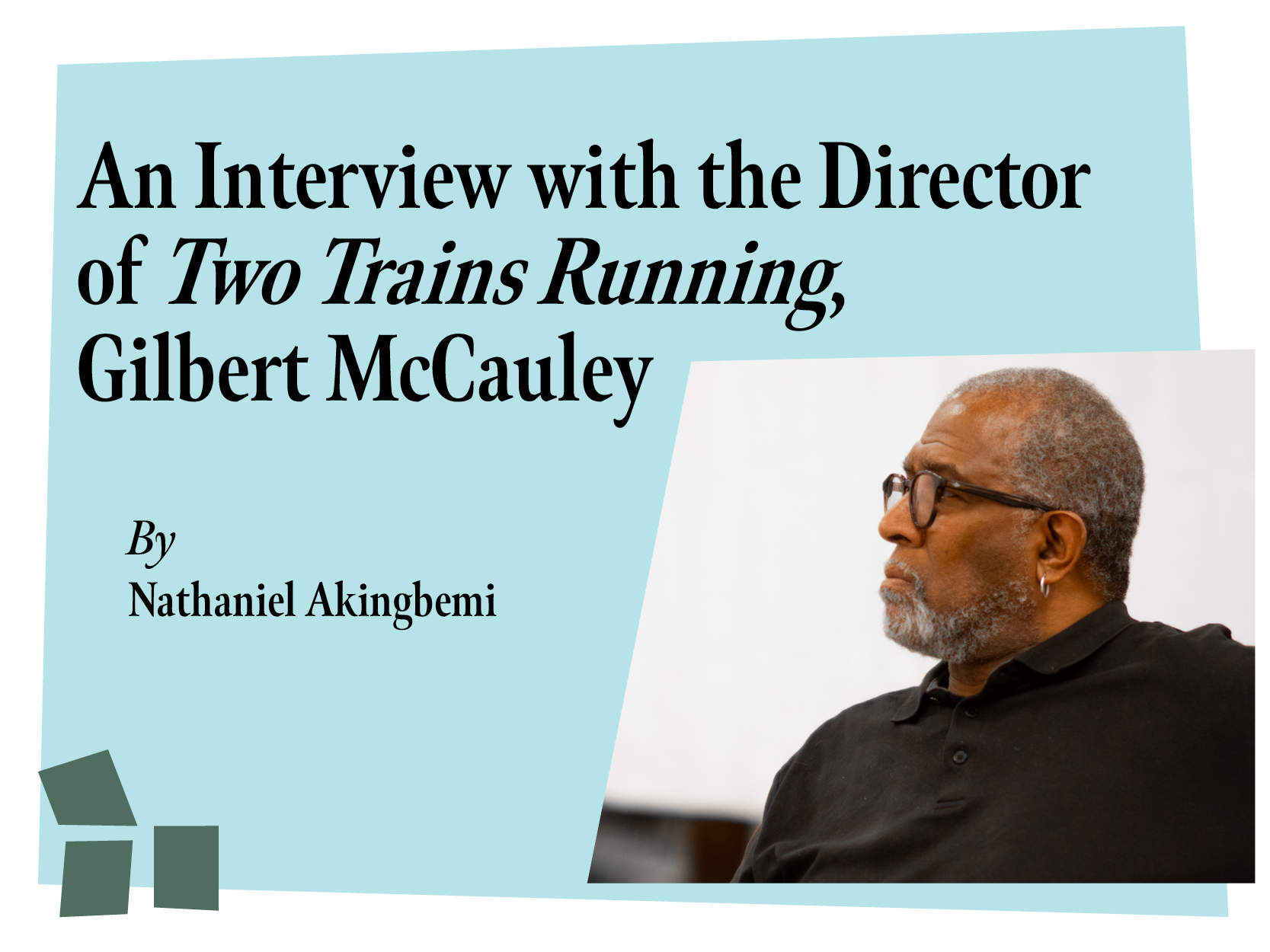

Nathaniel Akingbemi: What draws you most to Two Trains Running?
Gilbert McCauley: What draws me most to this play is the way that Mr. Wilson allows the characters to speak for themselves and to talk about these larger themes of “‘justice vs. just us,” systemic relations, and systemic racism disguised as urban renewal. He allows the characters to talk about these themes. He lets them explore how we—as Black people—play the game and manifest what we want.
NA: What does August Wilson mean to you as a poetic historian or guide for Black people, specifically?
GM: I don’t see poets necessarily trying to be guides; poets are trying to create something. The poet Octavio Paz said, “poetry is that which reveals this world while creating another.” Mr. Wilson was trying to reveal what was going on in 1969 by creating this other world that we could enter through these everyday people who he says, “have loud voices and big hearts.”
NA: What is the relevance of this play being set in 1969?
GM: Originally, Mr. Wilson set the play in 1968, but it was too much on the heels of the assassinations of Dr. Martin Luther King Jr. and Malcom X, that he moved it to 1969 to distance it a little bit. This period was also a few months before the assassination of Fred Hampton at the hands of Chicago police. With all of those events swirling together, Wilson purposefully set this play in 1969 so that we would reflect on the time. Also, Mr. Wilson is a poetic historian. His mission is to get at the blood’s memory—what is passed down from ancestors—so we’re attempting to tell the blood’s memory of that time.
NA: This play includes the usage of the N-word more than any other August Wilson play. Why do you think that is?
GM: I can only speculate, but I believe that 1969 is a coming of age for August Wilson. More specifically, 1969 was a period where he was coming into his own radicalized consciousness as a Black man in America. At that time, the N-word was shifting from a meaning that is reviled to a meaning of that is reclaimed. At this time in the sixties with a new call for Black power, the N-word was resonating differently in the community.
NA: As Black men, many of us are instructed to swallow our pride and let go of slights if it allows us to see another day. Could the characters in this play have had more peace if they moved on from these slights against them?
GM: This notion of accepting a slight actually goes to the heart of something that was really important for August Wilson. There was an event in Wilson’s life where his mother entered a radio contest, and the winner of the contest was supposed to receive a brand new washing machine. At the time, Mr. Wilson’s family very much needed a washing machine. His mother entered the contest, and she won. When they found out she was Black, they said, “Oh, we can’t give you a new washing machine, but we can give you a certificate for a used washing machine that you can get at the Salvation Army”. And despite the fact that she really needed one, despite the fact that many of her friends told her, “Well just take it and then you can at least get a better washing machine,” her response was, “something is not always better than nothing.” In terms of the show, this is Mr. Wilson’s point about everybody getting what is coming to them; something is not always better than nothing.

